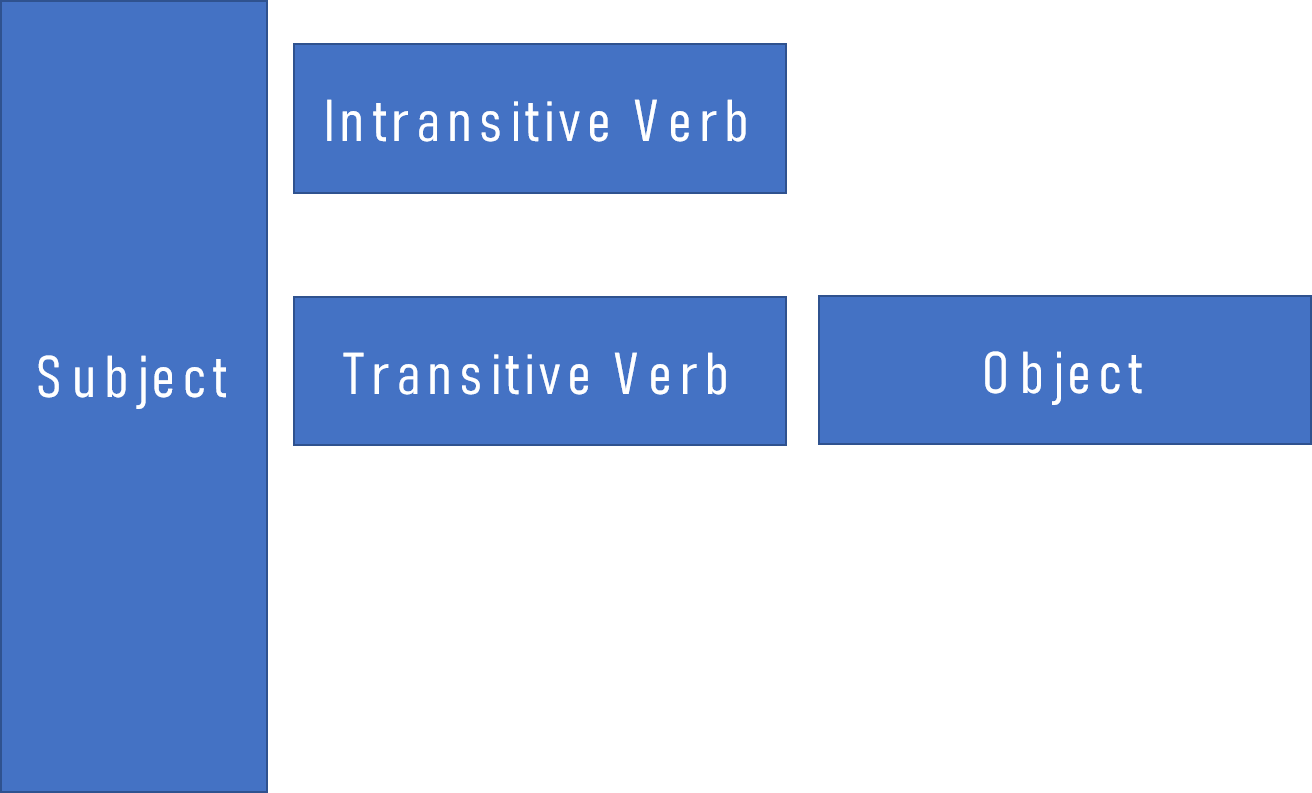Transitive & Intransitive Verbs
Transitive Verbs (Vt)
Transitive Verb - a verb that denotes an action which passes over from the Subject to an Object.
Hence, Transitive verbs are followed by an object. Such a verb doesn’t sound good or work on its own without an object.
The boy kicked. (incorrect as kicked is a transitive verb)
The boy kicked the ball.
- Common mistake: Many students leave out objects after transitive verbs.
Andrew took to the mall. (Andrew took whom or what?)
Andrew took his son to the mall.
Julia left on the floor. (Julia left whom or what?)
Julia left the bag on the floor.
- In case of no object, always use an appropriate dummy object for the verb.
My son needed a bike therefore I gave him some money to buy. (buy what?)
My son needed a bike therefore I gave him some money to buy it.
Intransitive Verbs (Vi)
The man laughed. (man – subject; laughed – verb; Where is the object?)
Intransitive verbs do not require an object to act upon (i.e. sentence will make sense even without an object).
All of them can end a sentence. Some intransitive verbs can even make comprehensible one-word sentences.
Run!
Sing!
An Intransitive Verb is:
a verb that denotes an Action which does not pass over to an object.
He ran fast.or a verb which expresses a State.
The baby sleeps.or a verb which expresses Being.
There is a flaw in this design.

- Transitive verbs can have a passive form.
Thieves stole his bike. (active)
His bike was stolen by thieves. (passive)
- Intransitive verbs never have a passive form (because there is no direct object).
He lives like a king. (active)
Transitive – Intransitive Interchangeability
Most verbs can be used both as Transitive and as Intransitive verbs.
To find out whether a verb is being used transitively or intransitively - determine whether the verb has an object (i.e. ask verb + what OR verb + whom).
| Verb used Transitively | Verb used Intransitively |
|---|---|
| The driver stopped the car. | The car stopped suddenly. |
| The horse kicked the jockey. | This horse never kicks. |
| The Germans fought the French. | Some Germans fight very fiercely. |
| I closed the door. | The door closed. |
- Sometimes the meaning changes depending on whether the verb is transitive or intransitive.
| Verb used Transitively | Verb used Intransitively |
|---|---|
| He runs a small manufacturing company. (runs - manage) | He runs in the park every morning. (runs - to run) |
| Do take off your shoes before entering the temple. (take off - remove) | The airplane will take off in a few minutes. (take off - fly) |
- Some verbs denote actions which cannot be done to anything - so they can never be used transitively.
The valiant soldier died in action.
Aanya fell on the ground while playing basketball.
vi (intransitive verb) and vt (transitive verb).
Any possible differences in meaning between the two uses will be given as well.

Extra Books and Tools
If you prefer to learn via books, or want some good English Grammar books for reference purposes, you may read this article which enlists some of the books recommended by us.